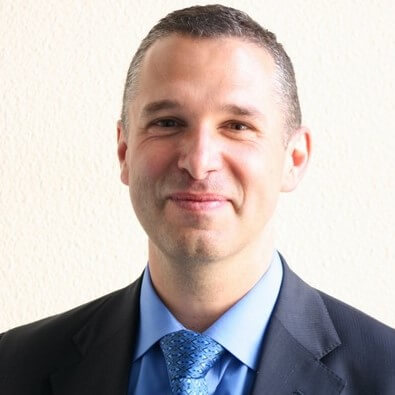- Learning
Learning for Disruption
When no strategy is safe, learn from those who have experienced the same intensity of change as you, says Patrick Faniel, Managing Director at Management Centre Europe (MCE)
Agility is an elusive quality for learning professionals. Change is coming at their organizations from all sides. Yet their conventional tools no longer work. In a volatile, unpredictable, complex and ambiguous world, it is becoming harder to know how to prepare your people for tomorrow.
“In all industries, change is not just accelerating, it is becoming non-linear. It could come from anywhere,” says Patrick Faniel, who partners with a faculty of 250 industry insiders at MCE. “You can find yourself facing challenges that you never imagined existed before.”
“Your industry could fail. You can no longer rely on certainties in the way you work. You are unsure about what behaviours you now expect from your people. It is a tough situation for learning professionals.”
Operating models
The direction of change is unpredictable. You cannot be sure what demands are going to be made on which skills. In pharma, the whole operating model has changed and behaviours are moving closer to consumer brands. As engineers, you now find yourself taking more of a lead in managing budgets and people. In mining, the business now revolves less around products and more around customers. In printing, the core business has disappeared and is turning into a digital service. In auto, you are learning to compete with Uber.
The agility principle
Once change management was a course on which you could send someone. Now agility is the principle that underlies all learning. You have to prepare for technologies, products and markets that don’t exist yet. Strategy evolves in real time. In every business discipline, you have to be ready to adapt tomorrow. It is the same in every industry. The difference will come from those of your people who can see what is happening and adapt.
VUCA leaders
Leadership remains central to how effectively you respond to VUCA, although in a way that is subtly altered. You might once have relied on encouraging a more inspirational style. Now it is more about the ability to cascade change through a company. You have a strategy. You have a process. The challenge is to get everyone aligned and engaged.
Strategic disconnect
The frustration for many learning professionals is that they sit outside the strategic circle. They are expected to align people with a change of direction from the top once it has already been set. It is a less than agile response.
Learning is integral to creating new ways to compete. What are the skills and behaviours expected? What are your current capabilities? Where are the gaps? How are you going to fill them? Can you train your people? Or are you going to replace them? Learning professionals are starting to find themselves drawn into these wider strategic decisions.
Course design
One trap into which organizations consistently fall is choosing the wrong course after failing to clarify their strategy. They treat the symptoms without properly addressing the cause.
It can feel, for example, as if a course on negotiating skills will equip everyone in a market that is being disrupted. But you first have to be clear on whether you are going to compete on price, on value or on customer intimacy.
Each of these responses demands a significant switch in how you operate. In none of them are negotiating skills more critical than any other business skill. For value, you will rely on more innovation. For price, you will re-configure your operation. For intimacy, you will change the conversation with your customers. The learning consequences are different in each case.
Direct experience
To get your people up to speed with the changing realties of VUCA, you can rely on what professors or consultants think and teach, says Patrick Faniel at MCE, but they have never been in a position when they have to follow through a decision and let 50 people go next week.
“So, whatever your industry”, he argues, “you want to learn from those who have been in the hot seat themselves and who have direct experience similar to your own.”
“Learning happens best when you are as close to the action as possible. Change is like a language. You can learn it from a book or on a programme, but you will always learn it much faster face to face with native speakers.”
………………………………………………………………………………………………………………….
Patrick Faniel is Managing Director of Management Centre Europe (MCE), following a career leading American companies in Europe, business schools in Switzerland and in the UK as well as the leading language immersion training company. He qualified as a commercial engineer and completed his executive education at the University of Berkeley, California.
……………………………………………………………………………………………………………………
MCE is running a series of programmes for HR professionals on leading and managing in a VUCA world, bringing in practitioners who have direct experience of how to translate new thinking into action.
ARTICLES YOU MIGHT LIKE
VIEWPOINT
For Thomas Misslin, transformation rather than training is the aim of executive education at emlyon business school
DEVELOPING LEADERS QUARTERLY MAGAZINE AND WEEKLY BRIEFING EMAILS

































